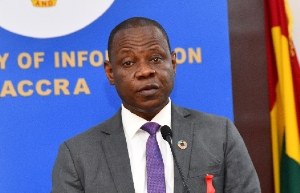The Ghana Health Service (GHS) has stated that it is working with Interpol to locate and recover outstanding salaries from health workers who were granted study leaves with pay, but failed to fulfil their bond obligations.
This action, according to the service, has been necessitated as some beneficiaries either abandoned their courses or absconded without notice.
Dr. Patrick Kuma-Aboagye, Director-General of the GHS, in a news report by graphic.com.gh, emphasised the need for accountability and recovery of funds.
He mentioned that despite efforts by some beneficiaries to repay part of their debts, significant amounts remain outstanding.
“A number of the beneficiaries have made some efforts to pay back some of the salaries they received, with others having outstanding payments to make,” he said.
The Auditor-General's report flagged instances where health professionals, after being granted study leave with pay, do not return to serve their bond terms as required.
The Ghana Health Service mandates that awardees report for duty at the end of their study leave, and failure to do so results in the repayment of salaries received during the leave periods, plus interest.
Dr. Kuma-Aboagye further noted challenges in recovering these funds, especially from beneficiaries who are now residing abroad.
To address this, he mentioned that the GHS has enlisted Interpol's assistance in locating these individuals.
“We made a report to the Interpol to assist us to recover the money back.
“But we are working very hard to see how we can find their guarantors to see how we can retrieve the money,” he said.
Regarding recommendations to recover funds from principal medical officers, Dr. Kuma-Aboagye disagreed, stating that approval for study leave is granted through regional health directorates, and recovery efforts should focus on the institutions involved.
“They only make the recommendations, and I think they would have to deal with the service and not the individuals.
“We are losing very experienced nurses, and so we have to increase our study leave so that they can be replaced because there is very little one can do to stop them,” Dr Kuma-Aboagye said.
In the last three years, the Ghana Health Service said that a total of 3,688 health personnel have departed the country in pursuit of better opportunities abroad.
This exodus encompasses both professional and critical caregivers.
Some health professionals attribute their departure to subpar working conditions in Ghana, prompting them to seek more favourable environments overseas.
NW/AE
General News of Wednesday, 31 January 2024
Source: www.ghanaweb.com













